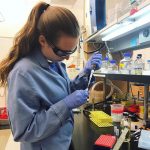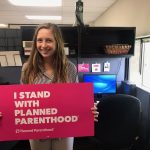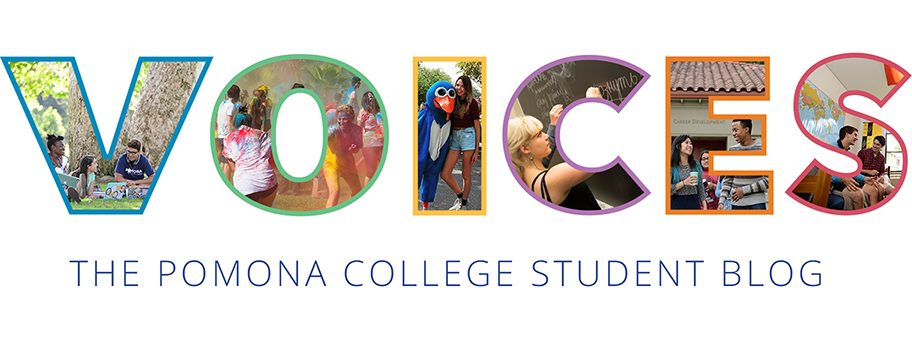By Calder Hollond ‘21
When I came to Pomona, I thought I was going to be an English major. That’s what I had told all my family and friends before I left home, what I told all my new friends at Pomona during the initial “What are you planning on majoring in?” small talk, and what I made sure to enroll in during course registration. What I hadn’t planned on was that after the first few weeks of my ID1, the first-year critical inquiry seminar, titled “Language and Gender,” I was hooked on a subject I had never before studied: gender studies. I loved all the readings and enjoyed the ability to link what I was reading to my everyday life. Taking the introductory Gender & Women’s Studies course solidified this interest, and so halfway through my first year, I decided to pursue a major in Gender & Women’s Studies, or GWS.

I still wasn’t quite sure what I wanted to do with it, though. I knew that I didn’t want to go to grad school or become a professor, that I wanted to do more hands-on work with present-day issues. I briefly considered trying to go into the nonprofit sector, because I want whatever I do to make a positive impact on the world, but I knew I didn’t want an office job where I was sitting at a computer all day; I wanted more face-to-face interaction with the people I was helping. One day over winter break my first year, I had an epiphany: I could become a gynecologist. The more I thought about it, the more it intrigued me: I would be able to do hands-on work providing reproductive healthcare to women, using knowledge of the interactions of gender, sexuality, and sex to inform my work.
This was definitely a crazy idea: I hadn’t come into college thinking that I would do pre-health; in fact, I had thought that I would stay as far away from STEM as possible. Most of the pre-health students I knew had been planning their medical careers since they were 10. Could I just jump in to pre-health halfway through my first year?

The answer, as I found out after meeting with pre-health advisors, was yes. Although it’s definitely easier to start out in pre-health, it’s also definitely possible to not start science classes until sophomore year, especially considering that I was going to stick with my GWS major rather than switching to a science major. I take roughly two pre-health classes and two classes for my major per semester, which gives me a nice 50-50 balance. Combining a humanities major with pre-health classes is not very common, and it sometimes comes with scheduling conflicts, but it’s also very rewarding. I love that I get a perfect balance of humanities and STEM – I’m not constantly reading theory and writing papers, but I’m also not constantly studying for tests and doing problem sets.
For students interested in pursuing a similar track and completing both a humanities major and pre-health courses, here are some pieces of advice:
1. Check your humanities major requirements to make sure it’s possible. My major works out well since GWS is only 9 classes without a concentration, but other majors that require 12+ classes would be more difficult.
2. Make a game plan for the next four years (scary, I know, but necessary). Plan out where you’ll fit in major classes, pre-health requirements, and gen-eds.
3. Check with your major advisor to make sure you’ll be getting all of your classes in. Are there any questions you have about the major requirements? Are you able to take major classes abroad? If you’re a first-year and don’t have an advisor in your major yet, reach out to a professor and ask to schedule a meeting with them.
4. Check with pre-health advisors and science professors to make sure your plan makes sense. Are there classes you’ll need prerequisites for? Are there certain classes that are only offered in the fall or in the spring? Are there professors who will be on sabbatical? When will you take the MCAT? Take all these into account before you register for classes.
5. Make sure not to burn out on either your major or your pre-health classes. There are some days where I feel like all I do is STEM, and there are other days where I worry that I’m not taking enough science classes. Finding a happy medium is important – go to talks and events held by both your major’s department and the science departments, and make connections with professors in both places.

Even on the days where I feel torn between my two interests, ultimately I’m very happy with my academic path. I get to use two different parts of my brain and study two different subjects that I’m passionate about. I can go from critically analyzing queer theory in the morning to pipetting bacterial cultures in the afternoon – which, ultimately, is what the liberal arts curriculum at Pomona is all about.
